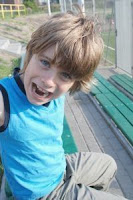Obsessions and the Autistic Mind: Help for People on the Autism Spectrum
Lecture by Mark Hutten, M.A. - Part 1 discusses obsessive thinking among individuals with Asperger's and High-Functioning Autism: More about intrusive thoughts in the autistic mind: Obsessive thinking is like a CD in a CD-player that’s stuck and keeps repeating the same lyrics. It’s replaying an argument with a friend in your mind. It’s retracing past mistakes. When people obsess, they over-think or ruminate about situations or life events (e.g., school, work, relationships). Research has shown that obsessive thinking is associated with a variety of negative consequences, including depression, anxiety, binge-drinking and binge-eating. For some people, drinking or binge-eating becomes a way to cope with life and drown out their obsessive thinking. When people obsess while they are in depressed mood, they remember more negative things that happened to them in the past, they interpret situations in their current lives more negatively, and they are more hopeles

